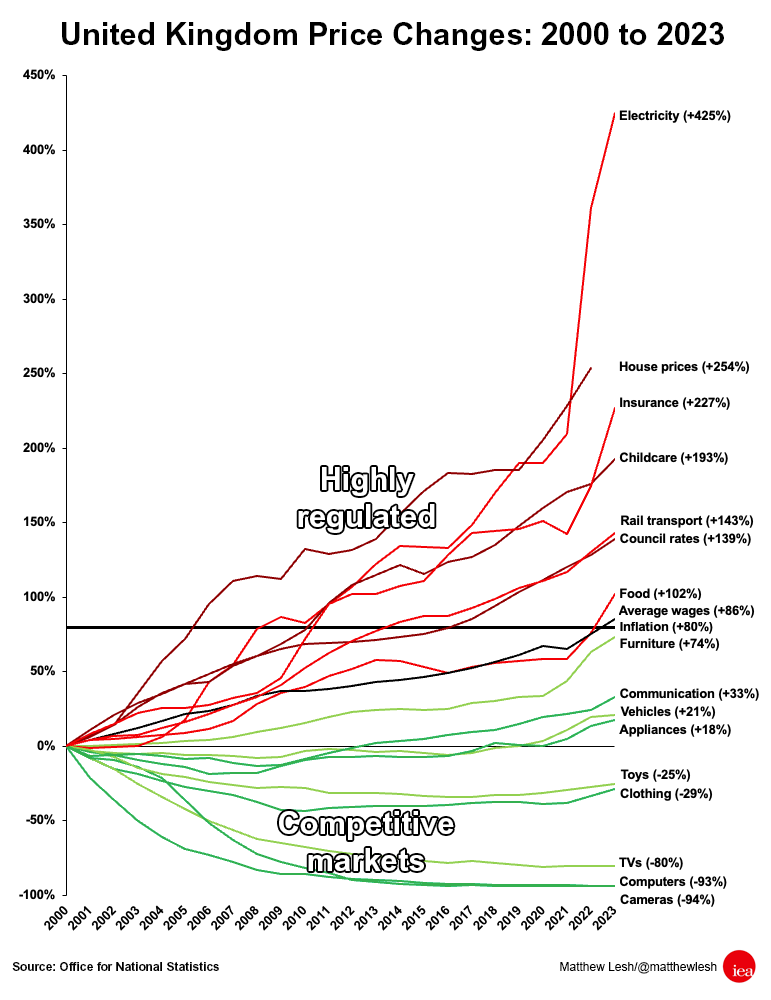February 24, 2024 by Dan Mitchell @ International Liberty
Editor's Note: This was lost in my draft file, and while it's a bit old, that doesn't change the facts. RK
I periodically share Mark Perry’s famous “Chart of the Century” to show that government intervention is a recipe for rising relative prices.*
Since economic principles don’t change when you cross national borders, one might expect to see similar patterns in other countries.
And we do. Here’s a chart from Matthew Lesh of the Institute for Economic Affairs in London. As you can see, overall inflation in the United Kingdom since 2000 has been 80 percent.
But prices have risen much faster in the sectors with lots of government intervention.
And prices have fallen, or risen at a slower-than-average pace, in the sectors where market forces dominate.
Here’s some of what he wrote to accompany the chart.
Prices have risen significantly faster than wages in the United Kingdom over recent years. The result has been a falling quality of life and significant hardship for tens of millions of households. Real household disposable incomes are now expected to be 3.5% lower in 2024-25 than their pre-pandemic levels… A useful starting point is considering which products have, and which have not, risen in price over recent years. …There have also been significant price increases in services and costs the government more directly controls, such as rail transport (+143%) – where the government sets around half the fares and heavily controls the sector – and council rates (+139%). …The products that have gone up most rapidly in cost include electricity (+425%), housing (+254%), and childcare (193%). Notably, these are sectors that have extensive state intervention through regulation and subsidies. …governments can and should change their approach to regulation. Cutting red tape in areas such as housing, energy, and financial services could reduce business costs and increase supply, resulting in lower costs for consumers.
This is spot on. As Ronald Reagan said more than 43 years ago, government is the problem.
And more government simply makes a bad situation even worse.
* Bad monetary policy is the recipe for overall increases in prices.

No comments:
Post a Comment